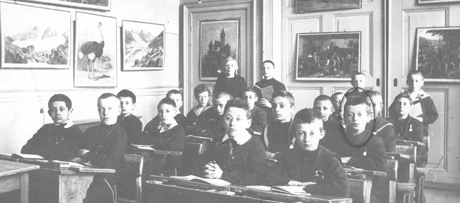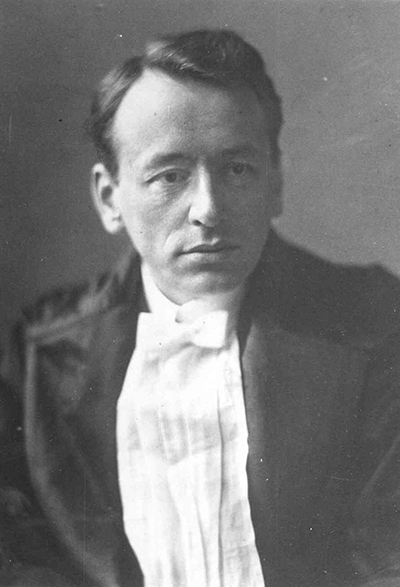Part 3 : the road to Groningen
Zernike studied chemistry in Amsterdam. And although he was already familiar with the University of Groningen (he won an earlier competion of this university - see part of this series), he came to the physics laboratory in a roundabout way.
In 1913 Zernike is appointed as assistent to Jacobus Kapteyn. Kapteyn is at that particular moment one of the best know researcher of the University of Groningen and enjoyed world fame as an astronomer with locating and mapping of stars and with research into the Milky Way. Zernike is appointed at the astronomy department, because this department is looking for talented statisticians for their new laboratory. Statistics is one of Zernike's favorite subjects. During his work as an assistent to Kapteyn, he finds out that his heart lies more with theoretical physics than with chemistry, something he also demonstrates in his dissertation, which he was working on at the time.
At the beginning of the twentienth century, the university of Groningen is still a relatively small university and there is much direct contact between faculties. It is therefore not strange that Zernike succeeds Professor Ornstein as university lecturer in theoretical physics in 1915. Later on it turns out that next to the theoretical side of physics, Zernike is also quite interested in practical physics....
| Last modified: | 16 March 2023 3.18 p.m. |





